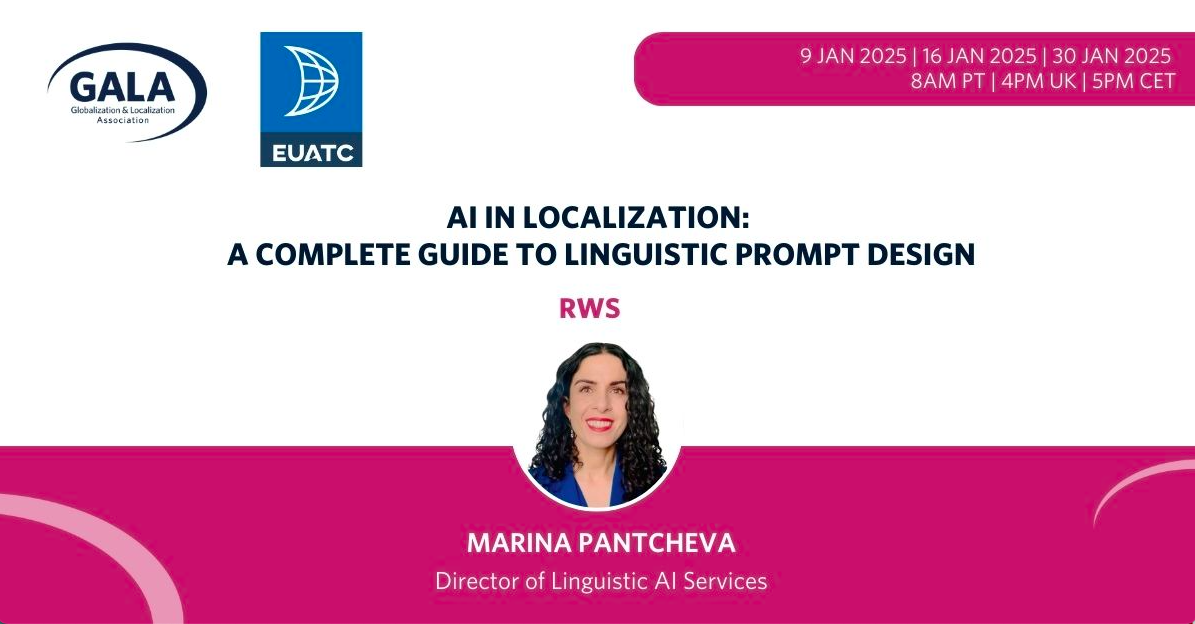Global Horizons Showcases International Trade Insights in Collaboration with Leading Industry Bodies
The Association of Translation Companies is collaborating with the Chartered Institute of Export & International…

The EUATC has teamed up with GALA to bring you a three-part webinar series exploring prompt engineering for Large Language Model (LLMs) to be delivered by Marina Pantcheva, RWS‘s Director of Linguistic Services.
This 3-module webinar explores the art and science of prompt design for Large Language Models (LLMs), with focus on their usage in the translation and the localization industry.
Each module comprises a one-hour session that explores different aspects of LLMs —from understanding their inner workings, through strategies for optimizing prompts, to methods for evaluating LLM output.
Who is this for?
The series is free to EUATC network members (including ATC members) and GALA members. There is a charge of $75 per session for non-members of both organisations. Follow the links below and create a few GALA account (if you haven’t got one already), then use discount code WEBINAR_09JAN_EUATC_RWS to activate your free ATC member access.
This first session of the 3-module prompt design webinar introduces the mechanics of LLMs, explaining how their training and your prompts define the output. The session explores AI’s capabilities, limitations, and practical use cases, with special focus on localization, including:
SIGN UP FOR WEBINAR 1# AI IN LOCALIZATION SERIES
This is the second part from the 3-module webinar on prompt design. This hands-on session equips you with practical knowledge and techniques for creating prompts. It covers various prompting methods, hand-on exercises and troubleshooting strategies. Topics include:
SIGN UP FOR WEBINAR 2# AI IN LOCALIZATION SERIES
The final session of the 3-part prompt design webinar focuses on evaluating the output of prompts, diagnosing issues, and refining the approach. You’ll learn to measure LLM performance, choose the right evaluation data set, and mitigate risks. Topics include: